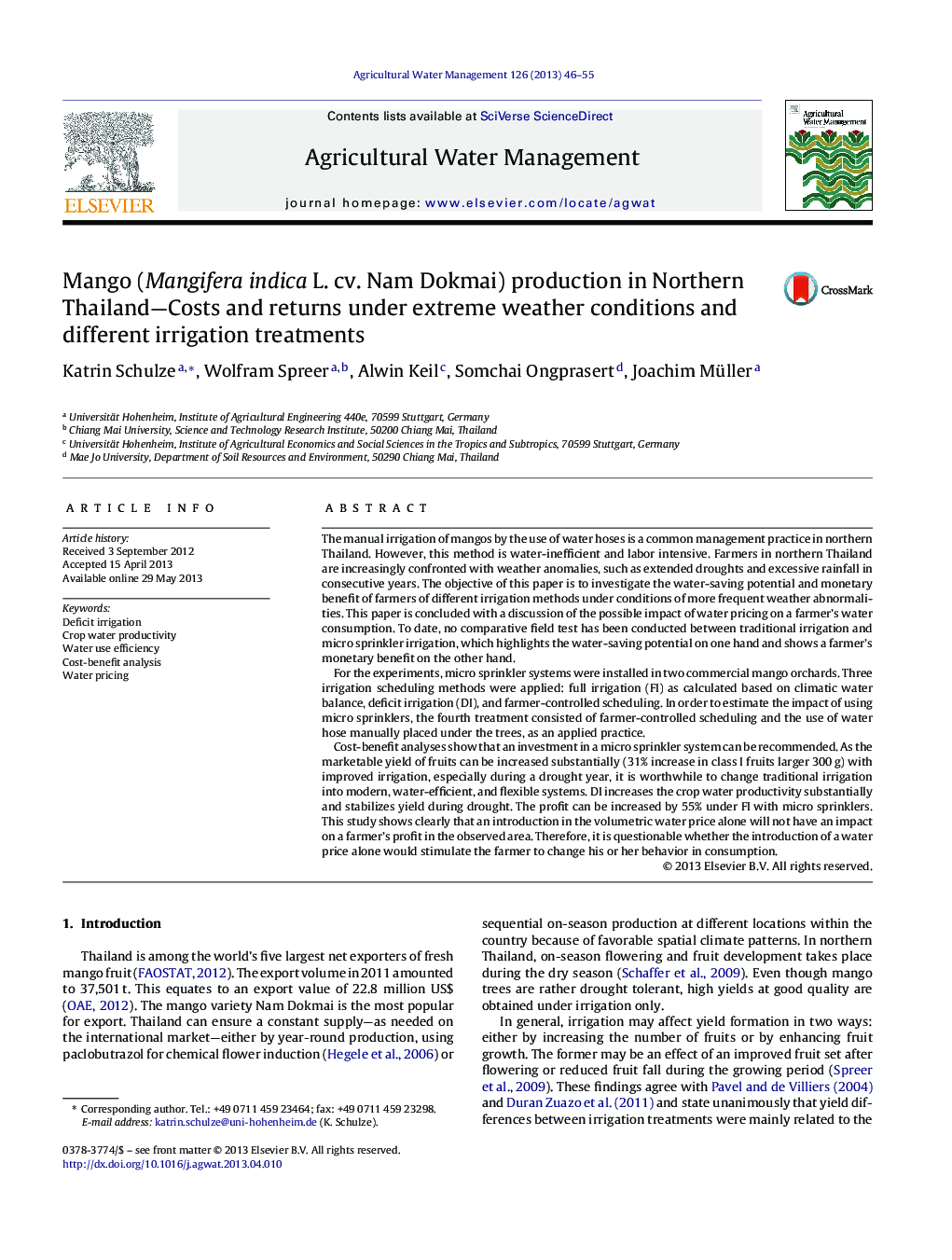| کد مقاله | کد نشریه | سال انتشار | مقاله انگلیسی | نسخه تمام متن |
|---|---|---|---|---|
| 4478816 | 1622953 | 2013 | 10 صفحه PDF | دانلود رایگان |

• We evaluated four different irrigation strategies in mango production.
• Investment in micro sprinkler can be recommended.
• Micro sprinkler can contribute to higher efficiency in mango production.
• Under extended droughts, deficit irrigation is good alternative for farmers.
• An introduction of a volumetric water price alone would not support a more efficient use of water.
The manual irrigation of mangos by the use of water hoses is a common management practice in northern Thailand. However, this method is water-inefficient and labor intensive. Farmers in northern Thailand are increasingly confronted with weather anomalies, such as extended droughts and excessive rainfall in consecutive years. The objective of this paper is to investigate the water-saving potential and monetary benefit of farmers of different irrigation methods under conditions of more frequent weather abnormalities. This paper is concluded with a discussion of the possible impact of water pricing on a farmer's water consumption. To date, no comparative field test has been conducted between traditional irrigation and micro sprinkler irrigation, which highlights the water-saving potential on one hand and shows a farmer's monetary benefit on the other hand.For the experiments, micro sprinkler systems were installed in two commercial mango orchards. Three irrigation scheduling methods were applied: full irrigation (FI) as calculated based on climatic water balance, deficit irrigation (DI), and farmer-controlled scheduling. In order to estimate the impact of using micro sprinklers, the fourth treatment consisted of farmer-controlled scheduling and the use of water hose manually placed under the trees, as an applied practice.Cost-benefit analyses show that an investment in a micro sprinkler system can be recommended. As the marketable yield of fruits can be increased substantially (31% increase in class I fruits larger 300 g) with improved irrigation, especially during a drought year, it is worthwhile to change traditional irrigation into modern, water-efficient, and flexible systems. DI increases the crop water productivity substantially and stabilizes yield during drought. The profit can be increased by 55% under FI with micro sprinklers. This study shows clearly that an introduction in the volumetric water price alone will not have an impact on a farmer's profit in the observed area. Therefore, it is questionable whether the introduction of a water price alone would stimulate the farmer to change his or her behavior in consumption.
Journal: Agricultural Water Management - Volume 126, August 2013, Pages 46–55